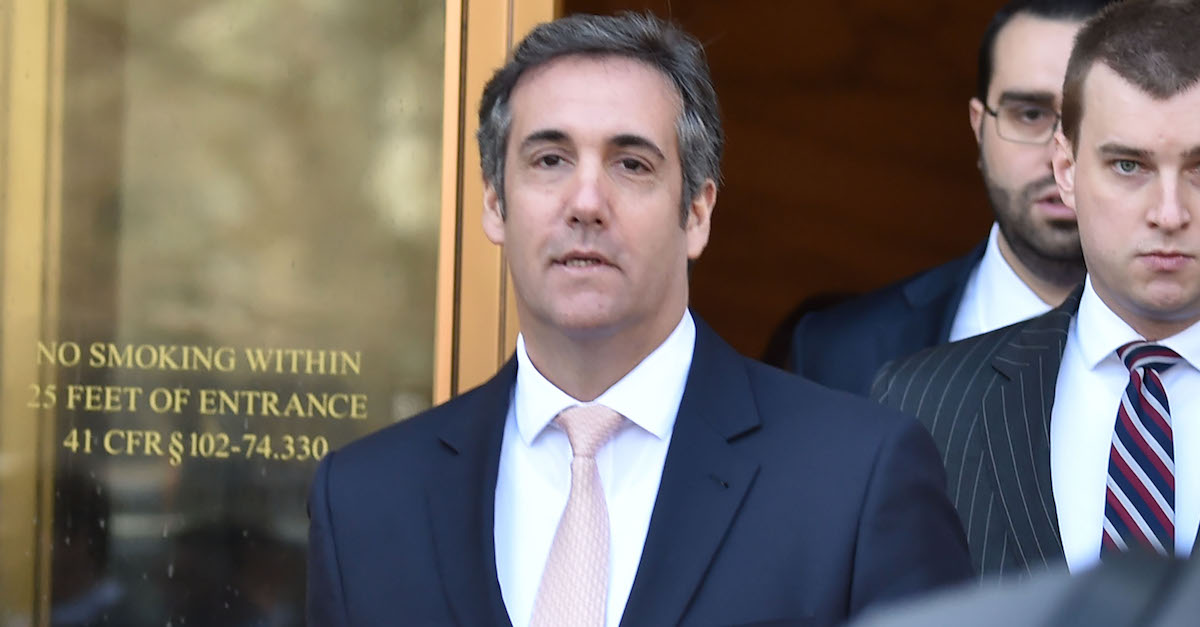
I’d love nothing more than to validate the media hyperbole and declare the Michael Cohen–Donald Trump audio tape a smoking gun. But it just isn’t. Tickers about “breaking news” and “bombshell reports” aside, the tape isn’t really such a big deal.
We already knew that Karen McDougal was a former Playboy model who allegedly had an affair with Donald Trump. That news broke last February. By McDougal’s (scarringly gross, for anyone who watched that Anderson Cooper special) account, the affair was entirely consensual, raising no immediate legal issues. We also knew that American Media, Inc. (“AMI”) – the publisher of the National Enquirer—paid $150,000 to McDougal for the exclusive rights to her story. AMI’s chairman, David Pecker, is a longtime personal friend of Donald Trump, and all reports indicated that AMI bought the rights to McDougal’s story for the sole purpose of burying it in the media. Shady and unpresidential for sure, but not necessarily illegal.
The only serious legal issue raised by the McDougal-AMI-Trump triangle (or quadrilateral, if one includes Michael Cohen’s role) is the campaign finance issue; if AMI used $150K of its money to help Trump in the election and Trump failed to report it, that’s problematic.
Now let’s turn to that “bombshell” audio tape offered up to the gods of headlines by the artist formerly known as “I’d-take-a-bullet-for-Donald-Trump.” On it, Trump and his then-attorney discuss the matter of a payoff, a shell company, and “our friend David.” Sure, the idea that a presidential candidate is out there creating companies for the sole purpose of covering his philandering tracks is disturbing – but it’s most likely not illegal. In this country, we have the freedom to contract; that includes the right to enter into a voluntary agreement to buy someone’s story – or even buy their silence (at least in this context). The law is also pretty liberal with what is considered an acceptable activity in which a business can lawfully engage. There are probably thousands of attorney-client meetings every day discussing such things, and there’s nothing particularly earth-shattering about this one.
Two things about the Cohen-Trump tape have potential to raise serious concerns – but this tape proves wrongdoing in neither case. First, it’s alarming that an attorney would secretly record a confidential conference with a client. However, New York is a “one-party state” when it comes to recording—which means that Cohen, like any individual, would be within his rights to record a conversation with an unwitting participant.
There are issues with attorney-client privilege as well as the rules of professional conduct – however, Lanny Davis, Cohen’s lawyer, has already laid groundwork on those fronts. Talking with George Stephanopoulos on ABC this morning, Davis suggested that Cohen had specific reasons for taping the conversation, and hinted that those reasons might be revealed in good time. Certainly, there are several circumstances (most notably, preventing a future crime) in which an attorney would be justified in surveilling his own client.
Second, there’s the issue of use of cash. On the tape, the audio is unclear, but Trump can be heard using the words, “pay with cash.” Despite Lanny Davis’ inflammatory talking point that “only mobsters and drug dealers use cash,” there’s nothing illegal about using cash; a great many law-abiding people use cash for legal purposes every day. And while were at it, I’m really not interested in lessons in citizenship brought to me by anyone on Michael Cohen’s team.
Still, Davis’ point stems from a kernel of truth—that transactions made using cash can be tough to track. If Trump were trying to effectuate a secret payoff, use of cash would be an important part of the equation. Still, though, we’re talking hypotheticals, because the tape proves very little in this regard, and Trump’s lawyer Rudy Giuliani insists Trump said, “Don’t pay with cash.”
It’s worth pointing out that those hoping for means to bring down Trump’s presidency might want to hold off their jubilation until they’re sure the Cohen tape isn’t something of a Trojan horse. If the tape does prove that Trump planned to purchase the McDougal story using his own funds, it may still be considered an unreported campaign loan, but even that is unclear given how little information is conveyed by the recording.
One of the toughest things about living in Trump’s America is maintaining barriers between that which breaks the law and that which simply offends our sensibilities. 2016 was the year we elected a president with a long history of seedy affairs and Mafia-esque preservation tactics. Audio tape of that president being exactly who we already knew he was is as far from shocking as it gets.
Note: This piece has been updated.
[Image via HECTOR RETAMAL/AFP/Getty Images]
This is an opinion piece. The views expressed in this article are those of just the author.